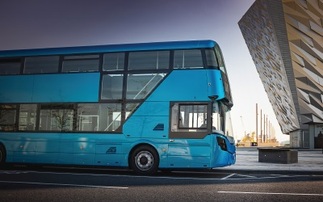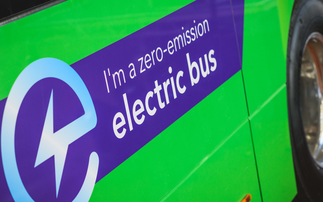Andre Veneman, Corporate Director for Sustainability and HSE at AkzoNobel, reveals how pioneering new paint technology is boosting fuel efficiency
The movement of people and goods is crucial to the world economy. Whether travelling for work, visiting friends, or using products shipped from another country, we rely on transport to go about our daily...
To continue reading this article...
Join BusinessGreen
In just a few clicks you can start your free BusinessGreen Lite membership for 12 months, providing you access to:
- Three complimentary articles per month covering the latest real-time news, analysis, and opinion from Europe’s leading source of information on the Green economy and business
- Receive important and breaking news stories via our daily news alert
- Our weekly newsletter with the best of the week’s green business news and analysis







